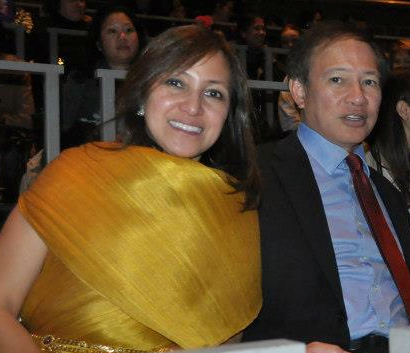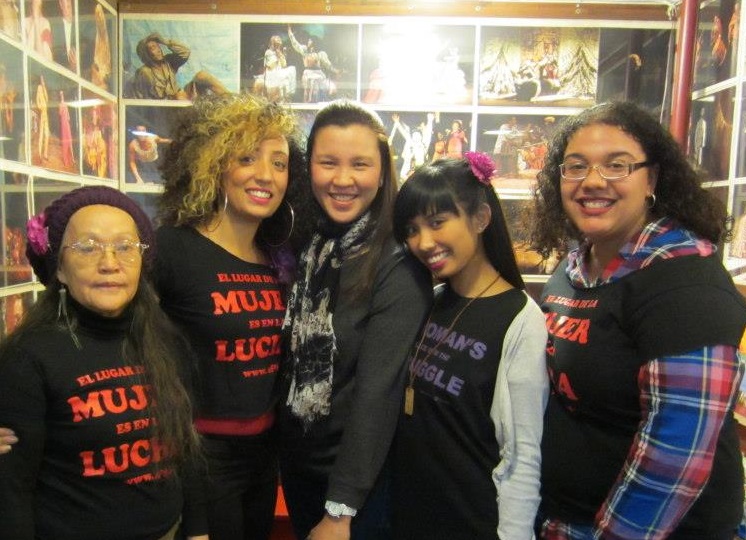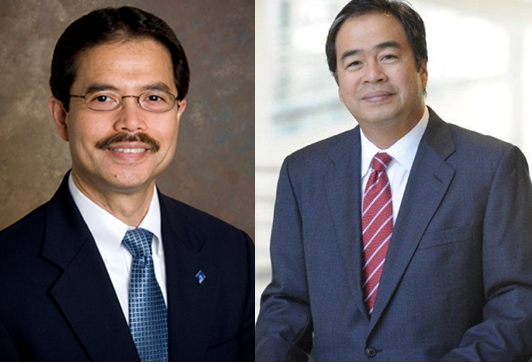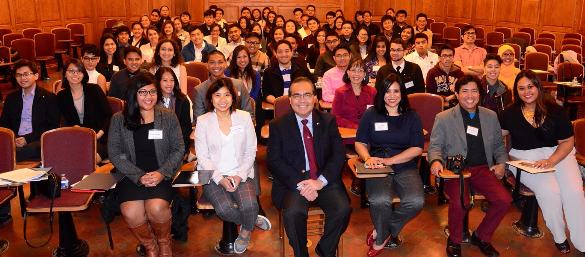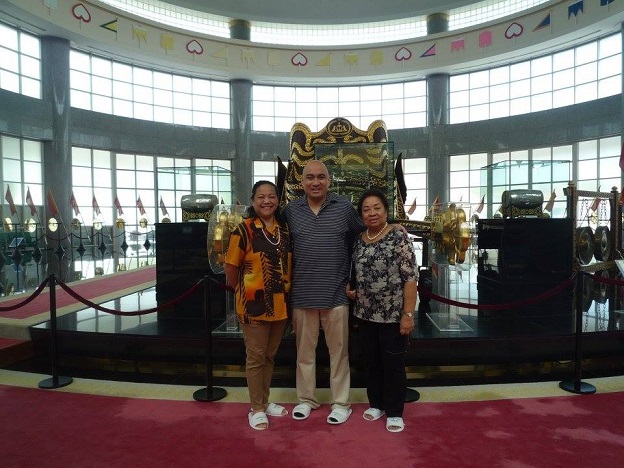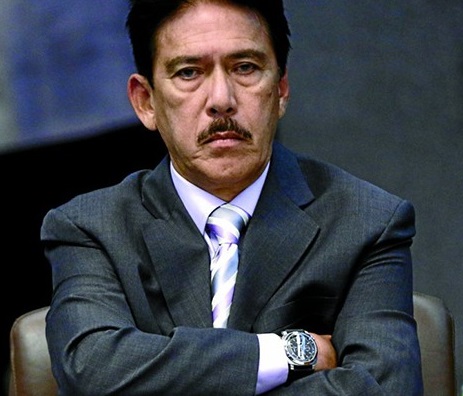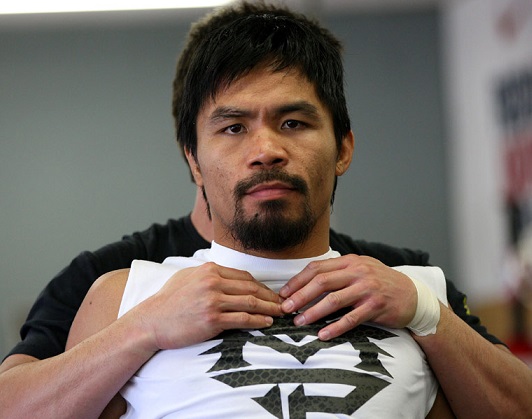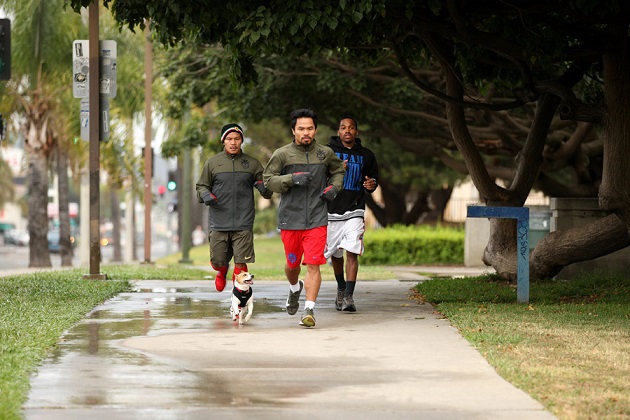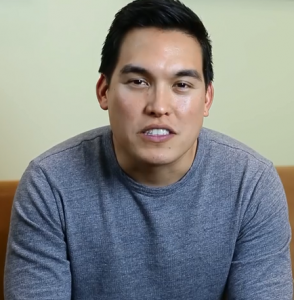Director Ryan Moore: Navigating Pacquiao’s layers of entourage felt like a ‘covert operation’ (Part 1)
By Cristina DC Pastor
Manny Pacquiao’s life is now in a documentary feature film, but as Filipino American director Ryan Moore would find out after five years of filming: the boxing legend’s erratic schedule and multiple layers of entourage presented the biggest hurdle.
“Tracking down Manny and staying on top of his schedule is like trying to predict the winning numbers of the lottery,” Moore told The FilAm in an interview. “Every day seemed like a covert operation trying to locate the elusive Manny Pacquiao.”
Born in Torrance, California, Moore is the son of an American from Oregon and a Filipino mother from Aringay, La Union. He grew up in California until the age of 14 when his family moved to Manila.
“I was shy for the most part until I broke out of my shell in high school,” he shared. In school, he discovered theater, and he began to act and sing until it “cured” him of his shyness. “West Side Story” was his first production. After that debut, he began to write one-act plays for school, and has never stopped writing short stories.
Before his senior year in high school, his parents separated. He moved back to the U.S. for college. His father Ralph stayed behind to continue the family business in Manila. He met and married the actress Hilda Koronel. “Yes, my stepmom is Hilda Koronel,” he said.
Back in California, he applied to the University of Southern California because he wanted to be a filmmaker, but got rejected for the prestigious film school. He got accepted into the business program, though. Throughout college, he continued to study 3-D animation, studied film on the side while helping out in his friends’ film projects.
The idea to do a documentary feature film on Manny Pacquiao came after years of many different jobs and entrepreneurial pursuits.
“It took a lot longer than I expected, but I’m glad it came to pass.” The film, with the support of Universal Pictures, is slated to screen in commercial theaters starting in January.
The New York premier on January 23 at the AMC Empire 25 will be sponsored by several community organizations, such as the Filipino American National Historical Society, the Fil-Am Press Club of New York, the Filipino American Museum, UniPro, Broadway Barkada and the Filipino School of New York and New Jersey.
“My hope is to continue to do Filipino-centric films in Hollywood,” said Moore. “Filipinos are underrepresented in entertainment and I believe it’s just a matter of time before we are able to capture more mainstream attention.”
More on Moore and “Manny” in this two-part interview.
The FilAm (TF): How long did the movie film – from the time you initiated contact with Manny Pacquiao till post-production?
Ryan Moore (RM): This film took me 5 years from the time I started developing it in 2009 to the time post-production was completed and I finally handed over the final product to Universal Pictures late this summer.
TF: How did you get Liam Neeson to narrate? Is he your first choice?
RM: My two top choices for narrator were Mark Wahlberg and Liam Neeson. I liked the both of them because of their deep appreciation and love of boxing. I was initially in contact with Mark since I had interviewed him for this film. It felt natural to ask him to do it. Unfortunately he encountered some schedule conflicts. I was bummed out.
So I figured I had nothing to lose and although it seemed like a long shot, I cold-called Liam’s agent in New York. After our initial conversation, it seemed like it wasn’t really going to happen since Liam was in the middle of shooting several films. Needless to say he’s currently in very high demand. So I wrote a letter to his agent and he handed it to Liam on set. Within a few days I got a callback that Liam agreed to do it. Within a matter of months I was in a recording studio working with Liam Neeson. To this day I can’t believe it happened.
TF: How did you navigate Pacquiao’s layers and multitudes of entourage?
RM: Tracking down Manny and staying on top of his schedule is like trying to predict the winning numbers of the lottery.
I can recall the first time I was going to film him in General Santos. Manny told me he was going to be there. Some of his entourage told me the same. So I booked a flight for my crew and I to GenSan. Mind you, I had never been there before and had no idea where I was going. So I took off from Los Angeles, landed in Manila and continued to the southern tip of the Philippines. I arrived at his sprawling mansion. To my surprise, when I arrived at the gate, the security guard told me Manny was not there.
This became quite normal. Every day seemed like a covert operation trying to locate the elusive Manny Pacquiao. Waiting for Manny became a normal everyday occurrence for me.
My crew had an ongoing joke that the film should be called “Waiting for Manny.” I realized that in order for me to be ahead of the game I had to be on the inside and be in touch with his entourage who knew where Manny was going to be every minute of the day. Some of his entourage would tip me off whereas some would send me in the wrong direction. They can be quite protective of him and some of them seem to have their own motives for keeping me on the outside. Some even questioned my position and why Manny ultimately opened up his life to me. It wouldn’t be a normal day at the office unless I sent off at least 100-200 texts in the morning trying to locate him.
TF: And this went on for years?
RM: After a year or so, my abilities at tracking Manny were put to the test. I had memorized his routines. Days after the Shane Mosely fight in 2011 I showed up in Congress, refreshed, and I arrived in his office before session began. Manny came through the door, entourage in tow, took one look at me and with a surprised look on his face he finally realized I was two steps ahead of him. After that instance, he began to allow me to film the more intimate stuff of he and his family behind closed doors.
I think that was his way of acknowledging my persistence and determination. I’ll never forget the day Manny said to call him directly and not talk to anyone else for the schedule. That’s when I knew life would be much easier, until of course he changed his phone number.
NEXT: How Jinkee and Dionesia are portrayed in the film


